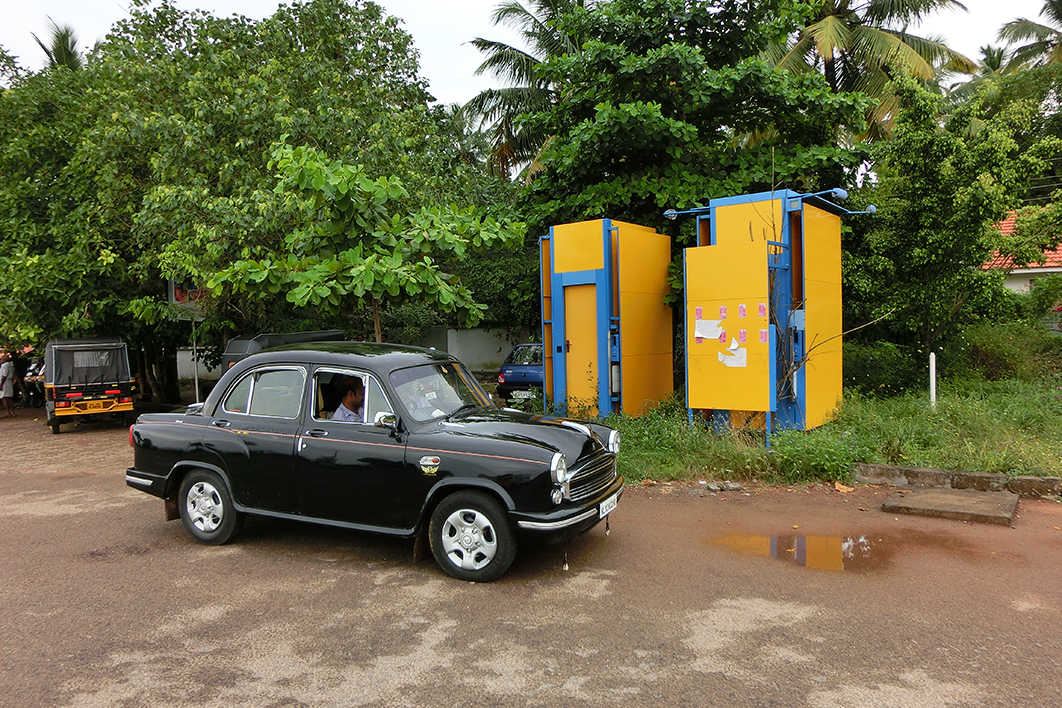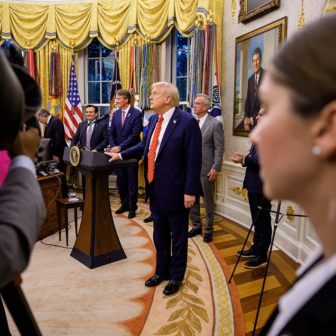Today is World Toilet Day, and this week is Antibiotics Awareness Week. The coincidence provides an opportunity to analyse two pressing and connected problems: a lack of basic sanitation for the world’s poor and the rise of “superbugs,” the bacteria that have become resistant to some or all antibiotics.
The world is rapidly moving towards a post-antibiotic epoch in which superbugs will define humanity’s future. The diminishing effectiveness of antimicrobials — the drugs we rely on to combat increasingly resistant microbes — is a global crisis, and India is becoming its ground zero. The lack of toilets and the rise of antimicrobial resistance are fundamentally linked.
Think of it this way. A landless labourer has a bout of diarrhoea but must keep working for fear of losing his job: competition for work is fierce in India’s informal labour markets. He takes the antibiotic from the street-side vendor and feels better, continuing to work.
And yet the gut tells another story. The drugs taken by the labourer did kill some bacteria, but others survived. In fact, the surviving bacteria develop a genetic trait, a “shield” as it were, that makes them oblivious to even the most powerful antibiotics.
These resistant bacteria tend to share their genetic traits with other bacteria, and so the problem spreads. Bacteria that have never been exposed to these antibiotics can now carry such powerful armoury against them, and even trade that armoury with others. The resistant bacteria will find their way out into the open in the faeces of millions of people without access to toilets, and then move through untreated sewage to rivers and other water bodies. There, insects, fish, birds and other wildlife will carry them further, contaminating the environment and compounding the cycle of infection.
Meanwhile, our poor labourer’s compromised immune system means he soon develops another sickness. This time the leftover antibiotics are ineffective, and he goes back to the pharmacist for even more powerful drugs. In his body, antibiotics exemplify the law of diminishing returns.
India is no stranger to the politics of poo. Back in 2012 the rural development minister, Jairam Ramesh of the Congress Party, provoked anger when he called India “the world’s largest open-air toilet.” More indignation followed when data revealed that far more Indians owned a mobile phone than had access to basic sanitation.
In 2014 India’s prime minister, Narendra Modi, launched the Clean India Mission (Swachh Bharat Abhiyan), vowing to eliminate India’s shameful practice of “open defecation.” More than 500 million people were still relieving themselves outdoors every day.
To eliminate open defecation, a toilet-building drive began, with the target of achieving an Open Defecation Free India by Mahatma Gandhi’s 150th birthday, 2 October 2019. Last month, with much fanfare, Modi proclaimed India ODF. The Economic Times recorded the prime minister’s exaltation: “The world is felicitating India for constructing more than 11 crore toilets [110 million] in sixty months, helping more than sixty crore [600 million] people to use toilets.”
In many ways, the “toilet revolution” embodied India’s new-found confidence that it was finally approaching the long-promised goal of “development for all.” Eliminating random defecation was also portrayed as a major step towards alleviating systemic issues such as poor hygiene, malnutrition, stunted growth in children, and challenges in cognitive development and infection control.
But there was another way of looking at Modi’s push. His medicalised, developmental view of the problem derived from an approach to public health that favoured government control and expert design. This top-down strategy meant that the state and corporations took the lead in protecting and controlling the conduct of citizens. Those who questioned this seemingly apolitical campaign risked being cast as anti-national, and people caught relieving themselves outdoors were targeted, punished or publicly shamed for their wayward behaviour. Technical solutions were more appealing than tackling the dynamics of poverty and disadvantage.
The reality on the ground, so to speak, is that open defecation continues. Researchers found that there was a big difference between building toilets and having them used and maintained. India’s 110 million new toilets are an excellent step forward, but they also need water, and the pit toilets favoured by the campaign must be properly built or they become cesspits leaching faeces into the groundwater.
Despite the scheme, this rapidly urbanising and densely populated country still lacks basic sanitation facilities. The catchphrase “behavioural change” rings hollow when enduring cultural prejudices relating to religion, caste, gender and class are allowed to persist. The dignity and safety afforded by well-built and maintained toilets remain the privilege of the affluent classes, while the poor are trapped by their living and working conditions in a cycle of infection. It is not surprising that the poor also resort to the quick-fix antibiotics commonly available over the counter in India’s street-side pharmacies.
Of course, poor sanitation, open defecation and self-medication only partly explain why India now leads the global drug-resistance index. Illicit practices in the global pharmaceutical industry, along with the excessive use of antibiotics in agriculture, are key contributors. This Ponzi scheme of antimicrobials, with its false promise of quick returns, means that India is a time bomb: perhaps the world’s largest breeding ground for superbugs. But the implications extend far beyond that country.
Resistant bacteria don’t care much for passports, ethnicity or even species. They colonise the bodies of humans and animals, move around the globe and leave a residue of resistance on the most everyday surfaces, not least our mobile phones. The touch of a tainted phone can be a powerful reminder of how we are intimately connected with someone without a toilet in India, and how our collective futures are tied to meeting the basic needs of those most vulnerable.
What is the answer to this pernicious nexus? The more we invest in culturally appropriate, multifaceted development across health, education and welfare, the less antimicrobial blowback humanity as a whole will experience. The life chances of the poor will determine our collective antimicrobial fate, which means that India’s poo problem touches humanity as a whole. •




